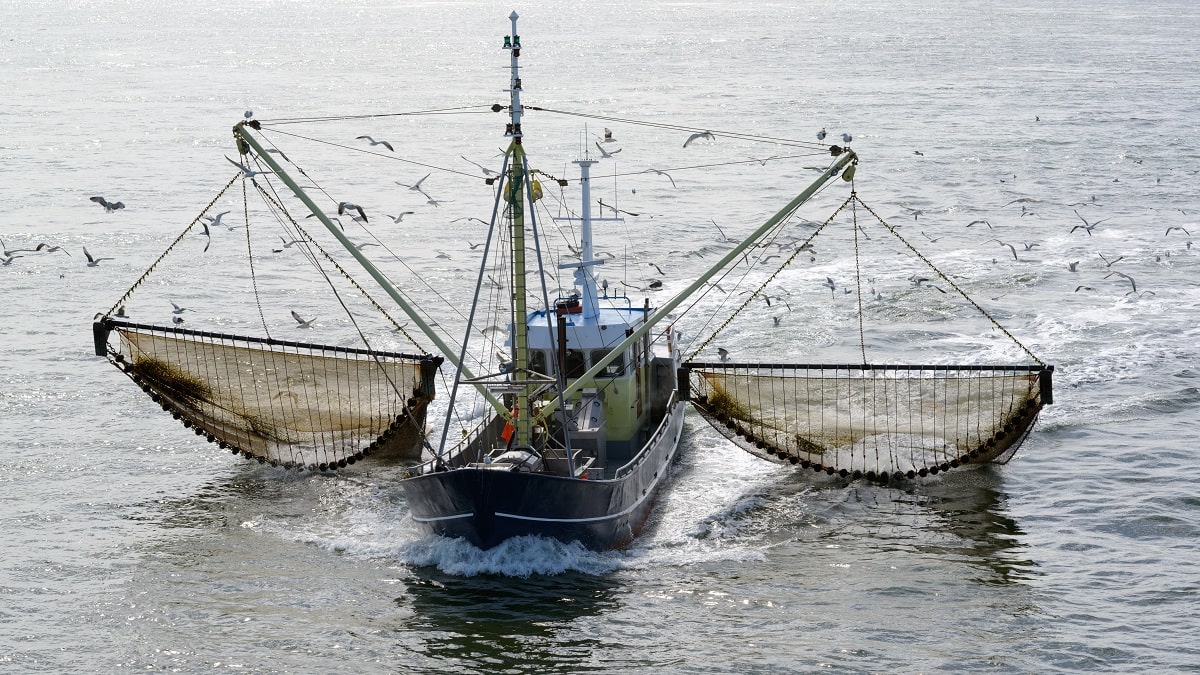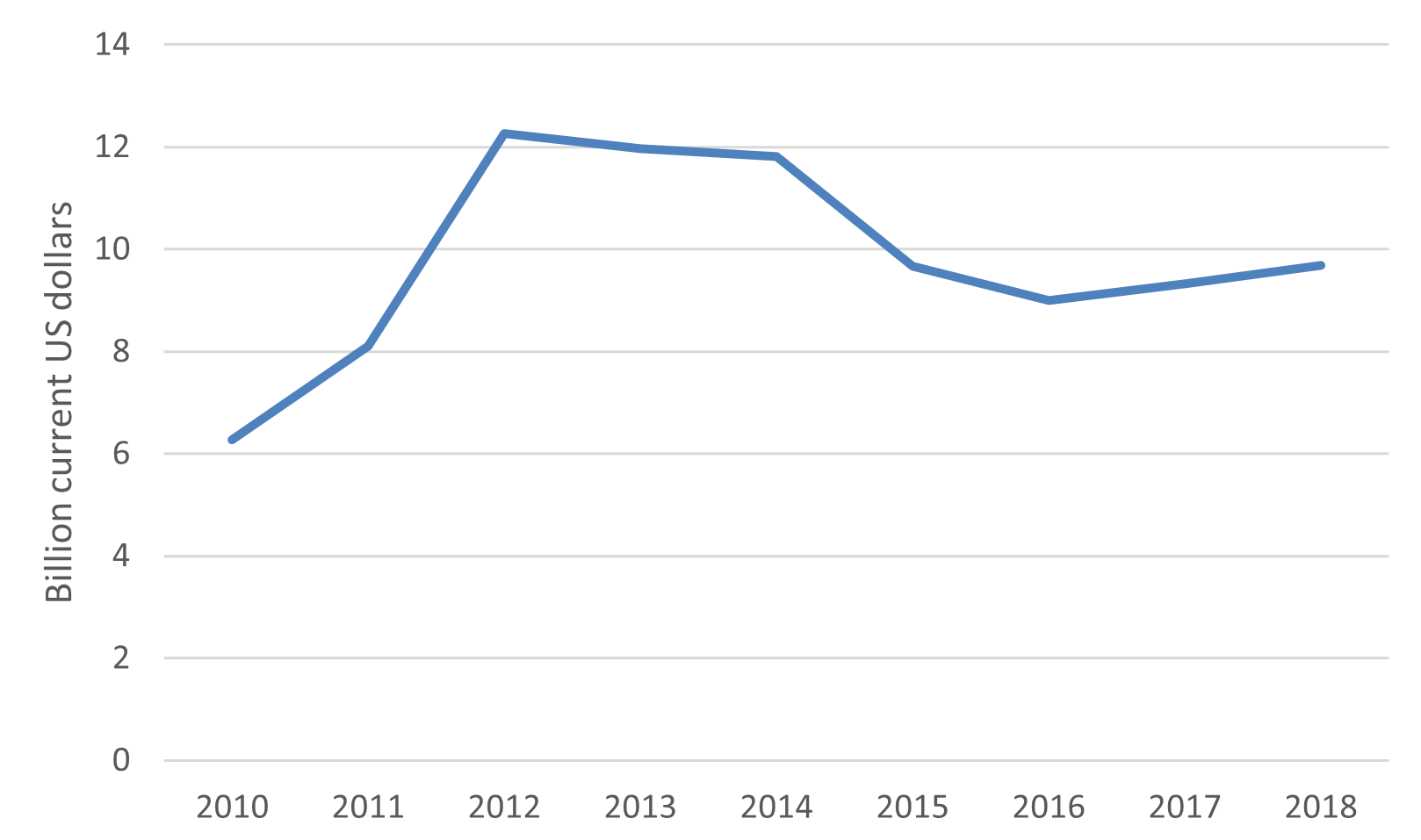By David Vivas-Eugui, UNCTAD, Victoria Chomo and Marcio Castro de Souza, FAO

© Split Second Stock/Shutterstock
Governments face multiple challenges to sustainably manage marine natural resources.
Effects of habitat degradation, overfishing, pollution and climate change are exacerbated by the growing capacity of fishing vessels, including high-efficiency fleets.
These are magnified by the distortive effects of public fisheries support, the insufficient availability of scientific data and the weak enforcement of ocean governance.
This combination of challenges calls for a profound transformation of the fisheries sector to align it with the 2030 Agenda for Sustainable Development.
Outcome on fisheries subsidies at our doorstep
In the area of fisheries subsidies, 20 years of negotiations by members of the World Trade Organization (WTO) are now at an advanced stage, with only a few issues left to address.
WTO members have pledged to conclude the negotiations before the 12th ministerial conference scheduled for June 2022, though they’re already behind the original deadline of 2020.
Sustainability is at the core of the negotiations and a WTO outcome on fisheries subsidies is at our doorstep – an opportunity that cannot be missed.
Today, 34% of global marine fish stocks have fallen to levels that are biologically unsustainable. Subsidies and overfishing generate losses of about $88.9 billion due to forgone net benefits.
Ending harmful practices, including overfishing and illegal, unreported and unregulated (IUU) fishing, plus rebuilding depleted marine resources could increase global catches by up to 20%.
Fisheries support: A worrisome trend
Fisheries support estimates for 39 countries assessed by the Organisation for Economic Co-operation and Development (OECD) averaged $12 billion per year between 2012 and 2014, before declining by 20%, to $9.4 billion per year for the 2015-2018 period.
However, fisheries support has been on an upward trend since 2016 (see the figure below). This is a worrisome trend that will worsen if a stalemate in the WTO fisheries subsidies negotiations persists.
Estimate of fisheries support by OECD members and selected countries, 2010-2018

Any future WTO rule covering fisheries subsidies would integrate part of a broader UN legal framework addressing the Law of the Sea, sustainability, illegal fishing operations and the management of migratory stocks.
Based on the current draft text of the WTO negotiations, the outcome is likely to be a legal instrument anchored in three prohibition pillars addressing fisheries subsidies that support IUU fishing, fishing overfished stocks and overcapacity that leads to overfishing.
The three pillars would be complemented by definitions, provisions on special and differential treatment (S&DT), notification and transparency. But such an instrument cannot be implemented in isolation and must be accompanied by implementation roadmaps and capacity-building programmes.
A year of opportunities
2022 is a year of opportunities for the fisheries sector. It’s the International Year of Artisanal Fisheries and Aquaculture. It’s also the year of broader sustainability dialogues such as the 4th Oceans Forum on trade-related aspects of SDG 14 and the 2022 UN Ocean Conference.
Without an agreement on fisheries subsidies, we won’t achieve Sustainable Development Goal 14.
However, implementing such a novel legal instrument won’t be an easy task. Adaptation of national systems would be necessary for many countries, while others would need to reform public fisheries support programmes in terms of objectives, targets, volumes and modalities.
And a necessary implementation roadmap would include actions to:
- Set and adjust national regulatory and relevant ex-ante and ex-post administrative procedures considering the limitation set by the three prohibitions pillars.
- Prepare assessments on country-specific needs.
- Provide an open online inventory of country requests versus assistance effectively given.
- Enable S&DT and technical cooperation as an integral part of the implementation effort.
- Support multi-stakeholder participation mechanisms to promote consultation and engagement for successful in-country implementation.
- Support the preparation of extended WTO country notifications on fisheries subsidies.
- Expand and increase Overseas Development Assistance for sustainable use of ocean resources.
- Provide linkages to complementary initiatives on the ocean economy and trade, the blue transformation and sustainable food systems.
In addition to this roadmap, further support by intergovernmental agencies, countries and other partners would be instrumental in enabling coherent implementation.
This would include improving public support mechanisms, implementing the Port State Measures Agreement and having more effective monitoring, control and surveillance systems to combat IUU operations.
It would also entail implementing more efficient and effective fisheries and climate resilience management systems and improved data collection.
Science-based technical assistance available
UNCTAD and the Food and Agriculture Organization (FAO) can provide the necessary capacity-building support from a multi-dimensional angle, addressing sustainability within the overall framework of the new rules on fisheries subsidies.
The importance of providing science-based technical assistance that is demand-driven, country-owned, transparent, accountable and geographically balanced, makes both agencies natural candidates to cooperate with the WTO in responding to country demands.
Addressing fisheries subsidies will also need the support of the private sector, scientists, fishers, civil society and consumer organizations that operate daily in the fisheries value chain.
The experience of UNCTAD and FAO covers broad thematic areas rooted in substantial fieldwork, facilitating inclusive and transparent consultative processes. The two UN organizations have data and technical expertise on fish trade, including trade flows, tariffs and non-tariff measures. They also have harvesting and production data on marine species and broader ocean economic sectors.
Both agencies have long-standing experience of supporting market access efforts, ensuring compliance with food safety standards and WTO notifications and developing ocean economy strategies.
UNCTAD and FAO stand ready to provide tailor-made solutions to countries covering these areas.


